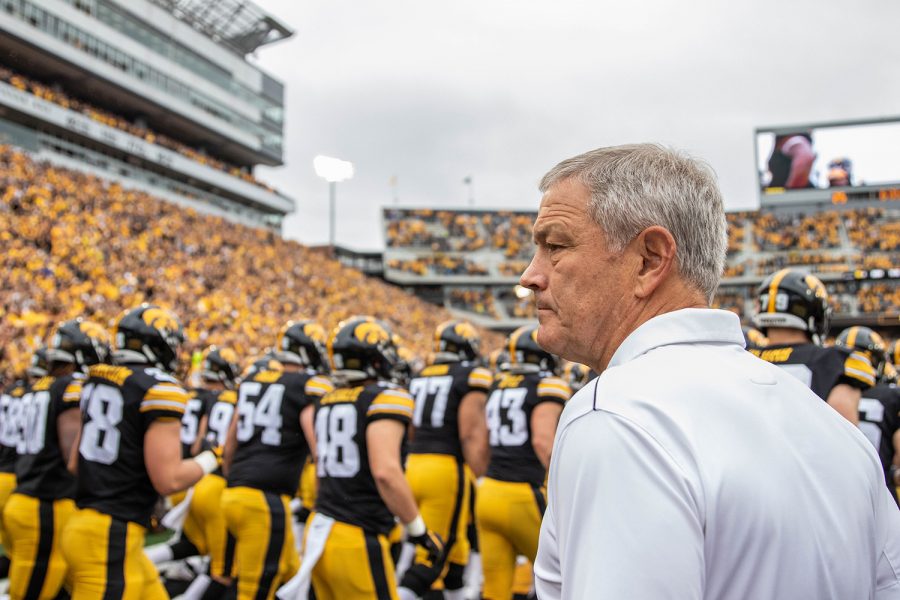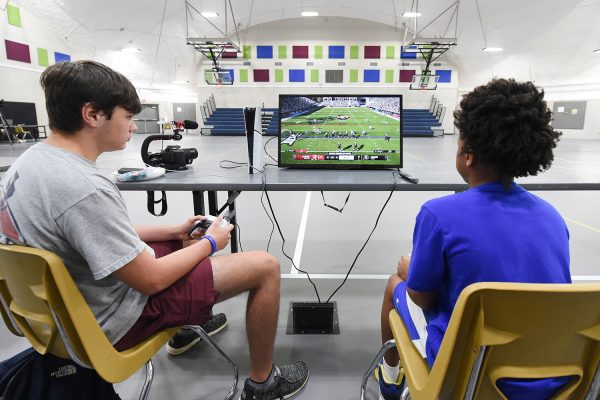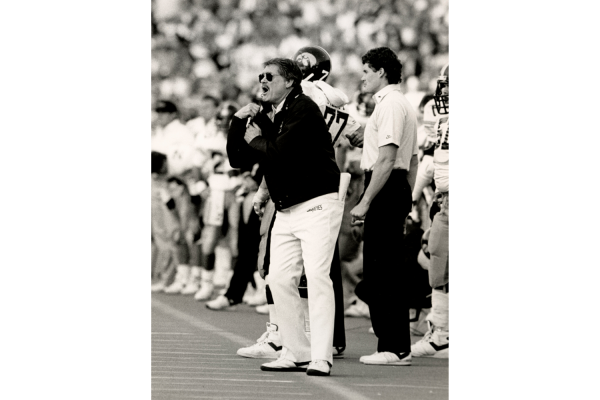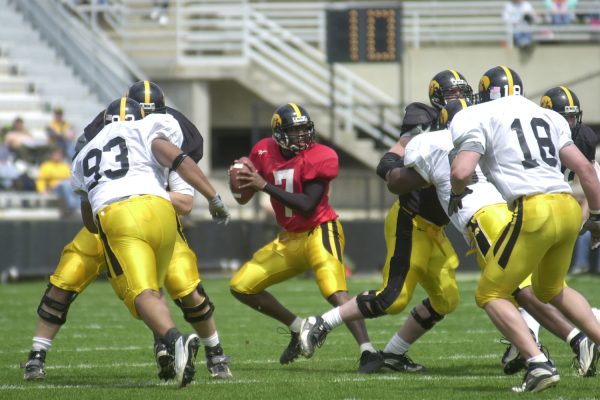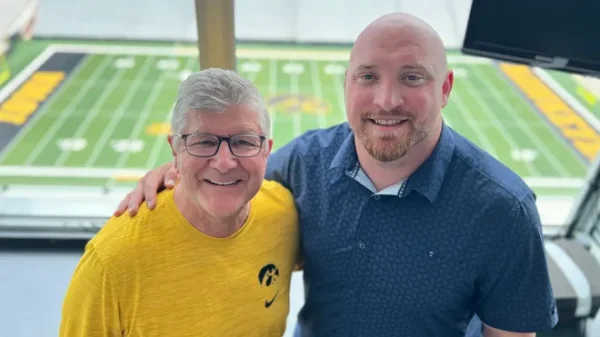Former Hawkeye football players sue the UI, Iowa football coaches alleging racial discrimination
A lawyer representing 13 Black former Iowa players announced Thursday that he has filed a lawsuit.
Iowa head coach Kirk Ferentz watches his players swarm the field before a football game between Iowa and Middle Tennessee State University on Saturday, September 28, 2019. The Hawkeyes defeated the Blue Raiders 48-3.
November 12, 2020
A lawyer representing 13 Black former University of Iowa football players announced Thursday that he has filed a civil lawsuit against the UI, alleging his clients were subject to racial discrimination in their time with the football program.
The plaintiffs represented by attorney Damario Solomon-Simmons include Brandon Simon, Akrum Wadley, Jonathan Parker, Marcel Joly, Aaron Mends, Maurice Fleming, Reggie Spearman, Kevonte Martin-Manley, Darian Cooper, LaRon Taylor, Terrence Harris, Javon Foy, and Andre Harris.
According to a press release sent out by Solomon-Simmons, the plaintiffs claim they suffered “serious and pervasive discriminatory treatment and harassment” in their time with the Hawkeye football program. The former players allege they were called racial slurs, forced to abandon common Black hairstyles and culture to fit into the “Iowa Way,” and were retaliated against for speaking out, the press release said.
Solomon-Simmons said Tuesday that his clients would be moving forward with a lawsuit and withdrew demands for a settlement. The lawsuit is not immediately available to the public as it is still being processed.
The defendants in the case are the University of Iowa, head football coach Kirk Ferentz, offensive coordinator Brian Ferentz, former strength and conditioning coach Chris Doyle, and interim strength and conditioning coach Raimond Braithwaite.
The UI and Doyle agreed to a $1.1 million separation agreement in June after several former players accused Doyle of racist and demeaning behavior. The agreement was not in lieu of termination and Doyle has denied the allegations.
A review of the Iowa football program by the law firm Husch Blackwell over the summer found that the program’s rules “perpetuated racial or cultural biases and diminished the value of cultural diversity” and allowed a “small group of coaches” to demean players. The firm’s report did not recommend that Kirk Ferentz or Barta be removed from their positions.
Solomon-Simmons sent a demand letter to the UI on Oct. 5 in an attempt to “amicably resolve” matters before filing suit. Solomon-Simmons demanded $20 million worth of compensation and the removal of Kirk Ferentz, Brian Ferentz, and Barta. At the time, Solomon-Simmons was only representing eight former Iowa players.
On Oct. 18, the university responded and denied the monetary and personnel demands. The response also listed the ways the program had been changed to be more welcoming to Black athletes. According to the letter sent by Solomon-Simmons on Tuesday, settlement negotiations had begun following the UI’s response.
The UI released a statement after the settlement was withdrawn.
“The stories shared by former athletes this summer resulted in a strong commitment to improve,” the statement says. “To that end, the University of Iowa continues to work hard to become a more inclusive campus for all students. We appreciate the athletes using their voices, and we are on a positive path forward with our team.
“As has been stated previously, any student-athlete who left the university without obtaining a degree is welcome to return as part of the UI athletics department degree completion program, which provides financial assistance for former student-athletes.”
In addition to the lawsuit, Solomon-Simmons said he is filing civil rights complaints the United States Department of Education, United States Department of Justice, and State of Iowa’s Civil Rights Commission as the former players were “denied the the benefits of a quality education and opportunities to excel.”



